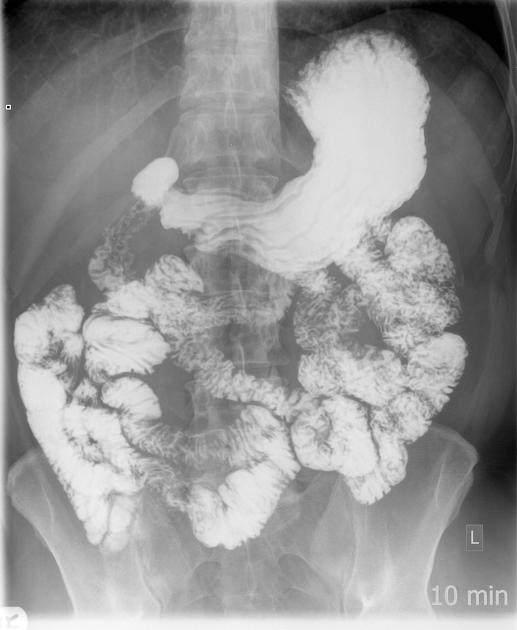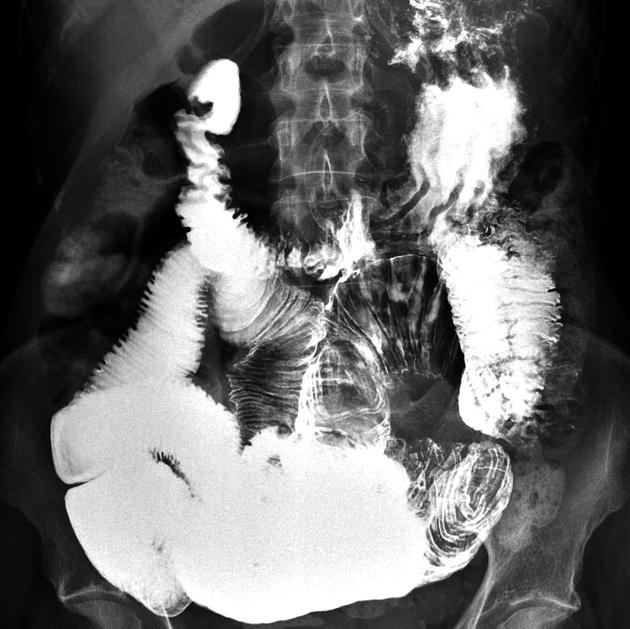The differential diagnosis of small bowel fold thickening is broad. Diffuse fold thickening may be "regular and smooth" or "irregular and nodular".
On this page:
Regular, smooth generalized thickening
- edema
- hemorrhage
- anticoagulation or bleeding diathesis
-
vasculitides
- IgA vasculitis (Henoch-Schonlein purpura)
- Buerger disease
- graft-versus-host disease (GVHD)
- hemolytic uremic syndrome (HUS)
- disseminated intravascular coagulation (DIC)
- trauma
- cellular/proteinaceous infiltrates
- lymphoma/leukemia
- eosinophilic enteritis: early, before becoming irregular
- amyloidosis: early, before becoming irregular
This is a long list and dividing patients by age and presentation helps somewhat.
Elderly, acute presentation: Top 3
- ischemia (arterial or venous)
- hemorrhage (warfarin)
- ?
Elderly, chronic/asymptomatic presentation: Top 3
- edema from CCF, hypoalbuminemia
- lymphatic obstruction
- lymphoma/leukemia
Young, acute presentation: Top 3
- infective
- inflammatory: e.g. Crohn disease
- vasculitis
Young, chronic/asymptomatic presentation: Top 3
- lymphoma/Leukemia
- radiation
- inflammatory: e.g. Crohn disease
Irregular, nodular generalized thickening
- neoplasms
- metastases, especially melanoma
- lymphoma
- infection
- Giardiasis
- Whipple disease
- tuberculosis: typically terminal ileum
- Yersinia: typically terminal ileum
- Strongyloidiasis: more pronounced proximally
- inflammatory/cellular/proteinaceous infiltrate






 Unable to process the form. Check for errors and try again.
Unable to process the form. Check for errors and try again.